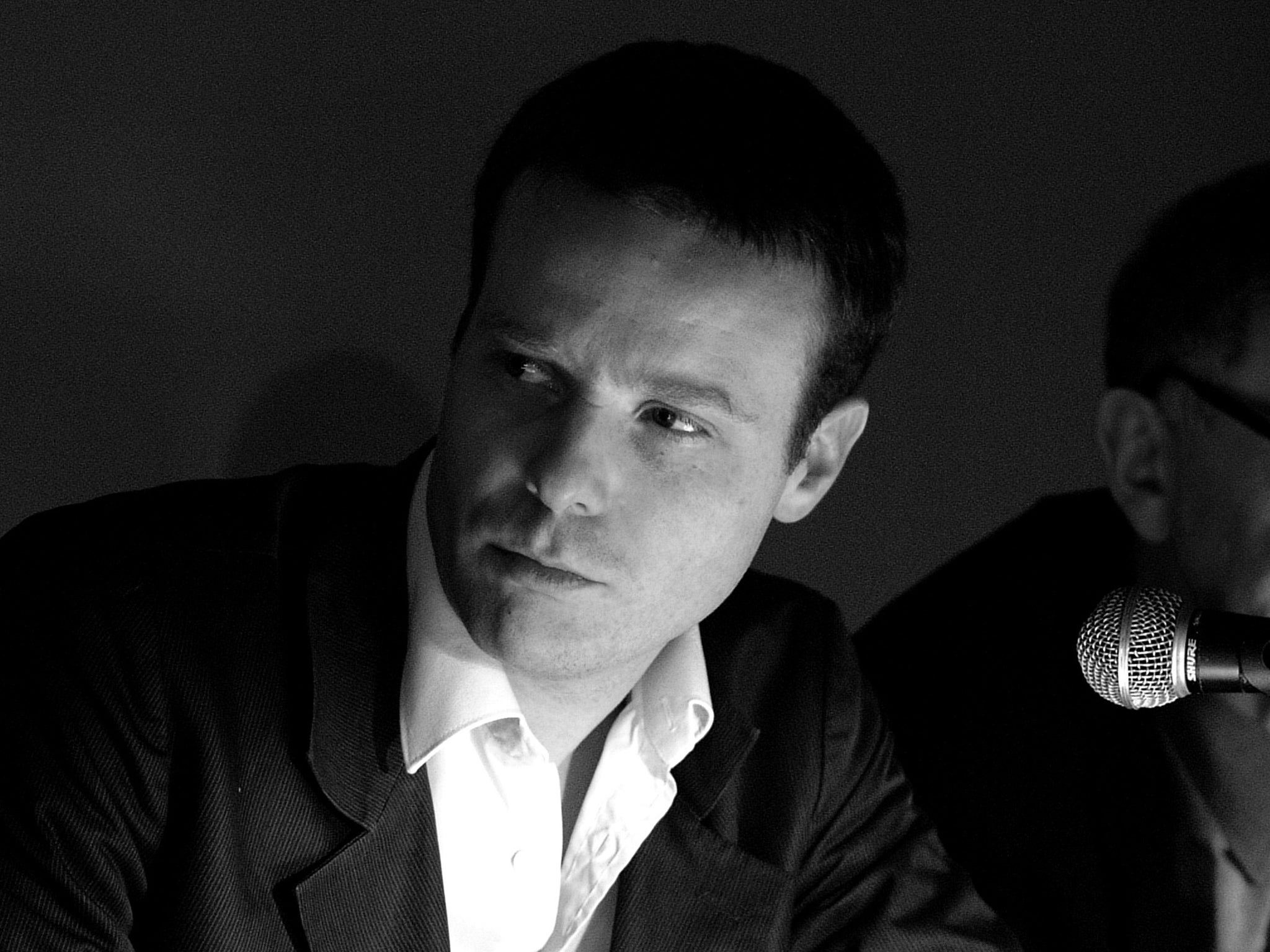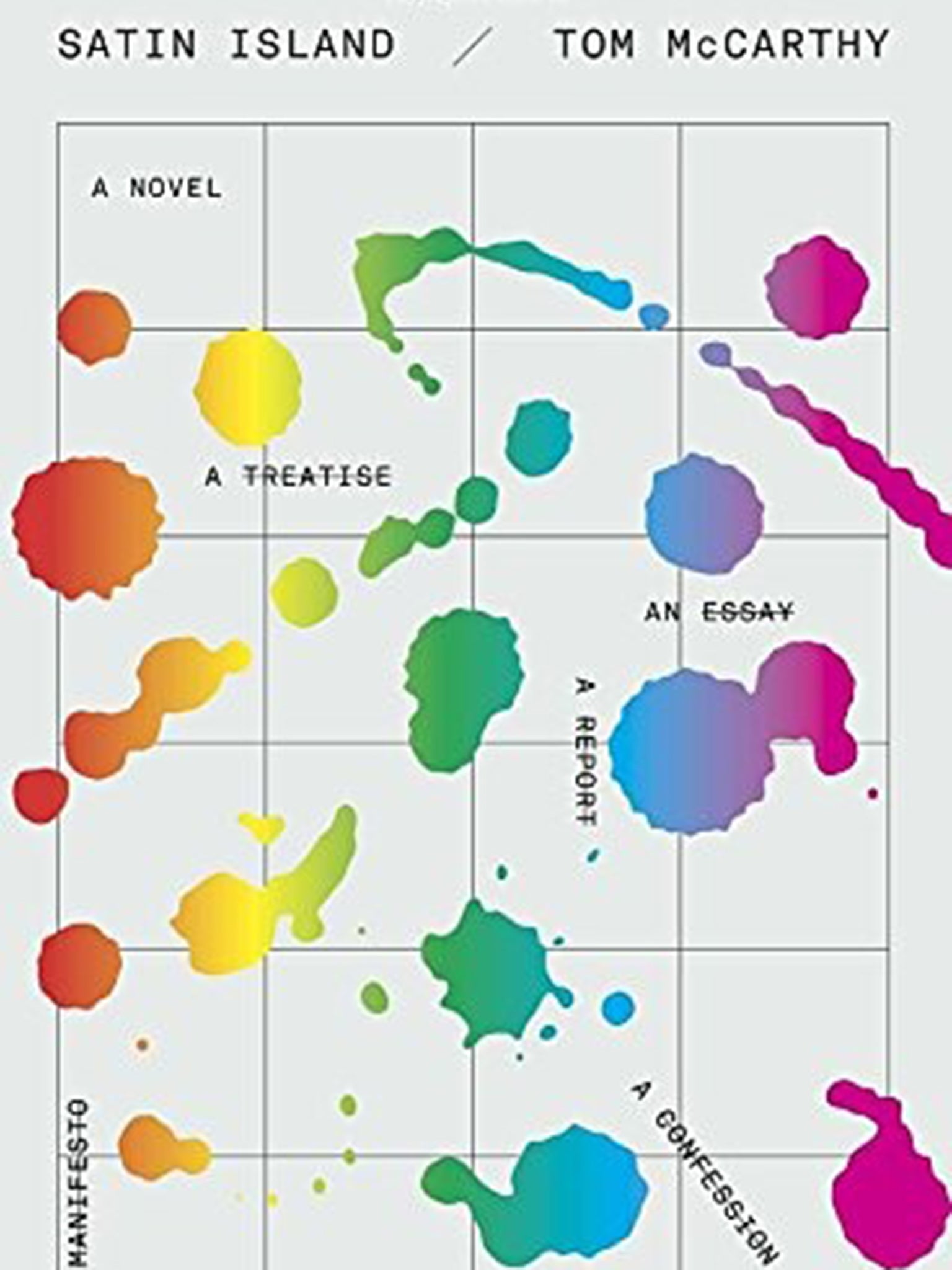Satin Island by Tom McCarthy, book review: This narrator is judged by The Company he keeps
McCarthy is more interested in concepts and subverting norms

Your support helps us to tell the story
From reproductive rights to climate change to Big Tech, The Independent is on the ground when the story is developing. Whether it's investigating the financials of Elon Musk's pro-Trump PAC or producing our latest documentary, 'The A Word', which shines a light on the American women fighting for reproductive rights, we know how important it is to parse out the facts from the messaging.
At such a critical moment in US history, we need reporters on the ground. Your donation allows us to keep sending journalists to speak to both sides of the story.
The Independent is trusted by Americans across the entire political spectrum. And unlike many other quality news outlets, we choose not to lock Americans out of our reporting and analysis with paywalls. We believe quality journalism should be available to everyone, paid for by those who can afford it.
Your support makes all the difference.Near the beginning of Tom McCarthy’s fourth novel, the narrator, named, with Kafkaesque obscurity, U, says: “People need foundation myths ... a bolt that secures the scaffolding that ... holds fast the entire architecture of reality.”
The foundations of U’s world become undermined by the conflicts engendered in his head by rapid, competing images of news stories and intellectual thought processes. He ends up in a feverish delirium about whether he can use world events or whether they will use – even engulf – him.
Sitting in Turin airport, U’s attention is snagged by first one news story and then another unfolding on the banks of screens around him. He is struck not only by their ubiquity and publicising of grief, but by the way that one emotion can so easily be superimposed on another: there is already dark irony in a man in a bombed marketplace surveying carnage and death wearing a Snoopy T-shirt.
That this man’s anguish and terror looks not unlike the roar of ecstasy on the face of footballers scoring on another screen is jarring, yet part of the fabric of everyday Western life. Similarly, images of the horrors inflicted by humans are reflected in the polished glass windows of the shops selling luxury goods; death superimposed on genteel capitalism.
U is an anthropologist. Instead of studying tribes in remote places, he is hired by a company (The Company), to scrutinise and analyse the rituals of the corporate world and to formulate a report. The Company analyses the operations of other companies and reports back to them, trading ideas, concepts and aphorisms. Recently, The Company has won a new commission.

The details of this remain opaque, but then, neither U nor his creator is concerned much with specifics, whether of U’s work, recreation or relationships, or, in McCarthy’s case, of character or plot. McCarthy is more interested in concepts and subverting norms; his aim is to be to literature what Dadaism was to art – an avant-garde challenge to bourgeois values.
U is haunted by two news stories – a major oil spill, which U then sees around him, for instance, in his dreams and under his cancer-ridden friend’s skin; and the death of a parachutist who plummets to his doom when his parachute is vandalised. In McCarthy’s first novel, Remainder (2005), a man’s life was changed by something falling from the sky, and U also suffers psychological damage as his mind whirs through explanations for the parachutist’s death. He suffers a breakdown with manic delusions of grandeur followed by depression.
Although McCarthy’s novels are antithetical to much of mass fiction, his structure is not experimental in the way of, say, James Joyce’s Ulysses. Here, each chapter is divided into numbered sections which progress much like the ticker tape of news that occupies U.
Typically for McCarthy, there are references to intellectuals from multiple disciplines. His characteristic mischief is also present, for example, in the playful way that U segues from Levi-Strauss, the anthropologist, to Levi Strauss the jeans manufacturer. There are funny sections, as when, in the way of procrastinating writers, U clears his desk in preparation for writing, then feels as virtuous as if he had already penned the work. The gradual reappearance of objects on his desk is an allegory for the constant intrusion of daily life into his report, all this paraphernalia conflating with, or even becoming, the report.
Certain themes recur. Purity versus illusion/masquerades is one. U wrote a book about clubbing. He didn’t write it as a detached observer but as someone immersed in the scene. Does this taint his work, render it less objective? Masquerades crop up again in a discussion about coffee shops in Seattle (home to Starbucks) which are ostensibly not Starbucks, but are owned by them. Elsewhere, the Hawthorne effect is mentioned: the way people who know they’re being observed alter their behaviour – another form of façade. In one of McCarthy’s many stunning images, worshippers at Mecca take on the illusory appearance of water circling down a plug.
Falsehood is sanctified even in death: a minister giving a funeral service projects his own faith and values on to the deceased. U is fascinated by patterns, whether they are on Chladni plates or in people’s behaviour. Inversions also intrigue him – will the report inform on events or vice versa? Who is the dupe and who the duper in anthropological observation of unintelligible behaviour? Do we need contemporary anthropology or anthropology of the contemporary?
The wealth of intellectual ideas can make the novel feel dense. McCarthy’s typical eschewal of character development (U’s girlfriend seems a cipher, other than one bizarre incident which sounds like one of McCarthy’s performances for the International Necronautical Society) accentuates the intensity. But McCarthy’s crisp, clean prose is stimulating, his concepts original and his visual imagery powerful.
Jonathan Cape £16.99
Join our commenting forum
Join thought-provoking conversations, follow other Independent readers and see their replies
0Comments